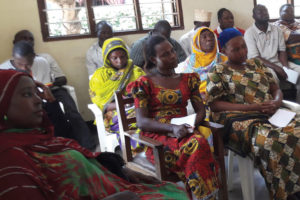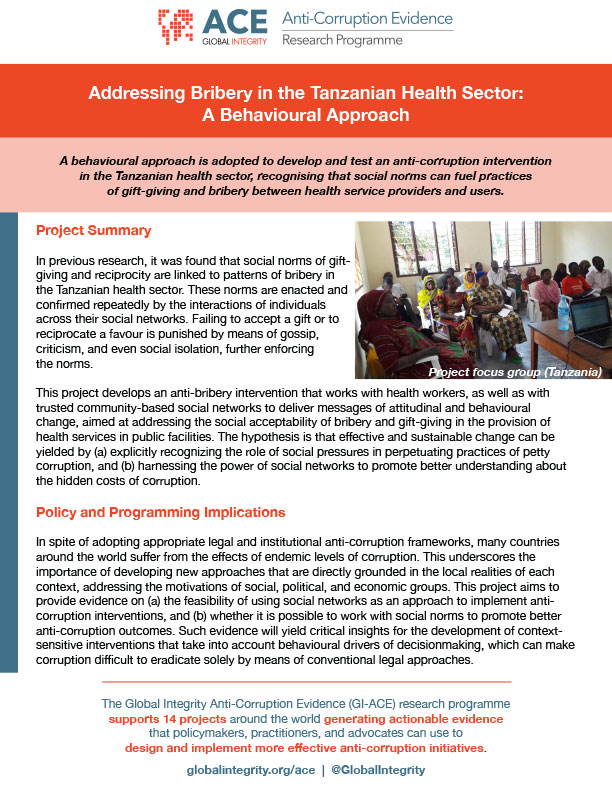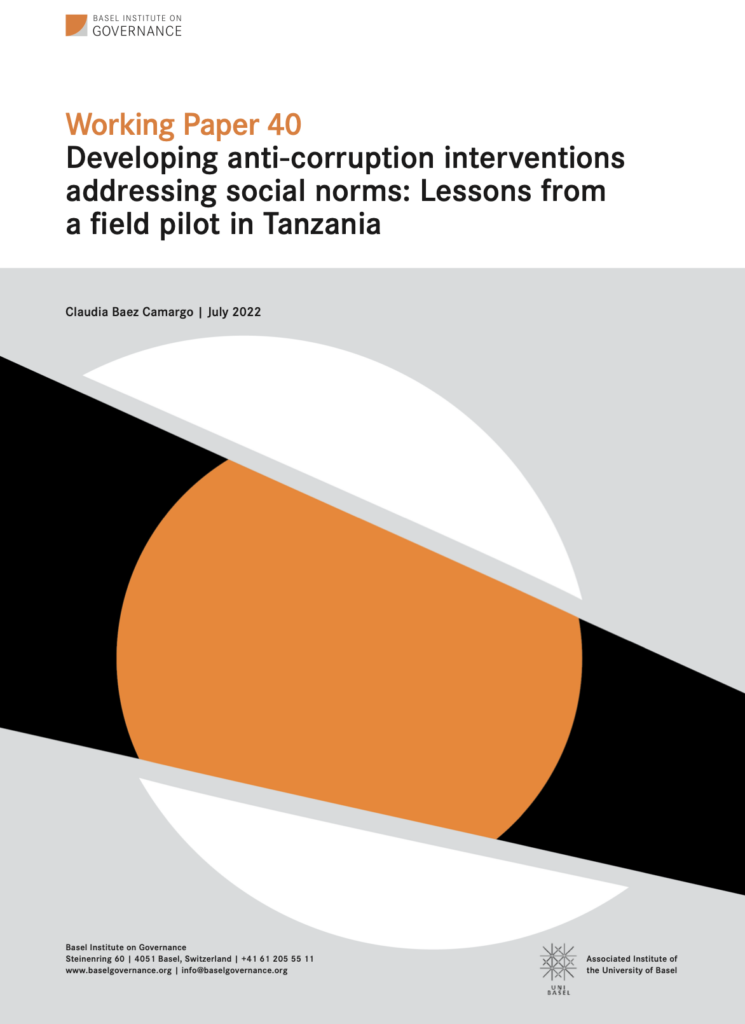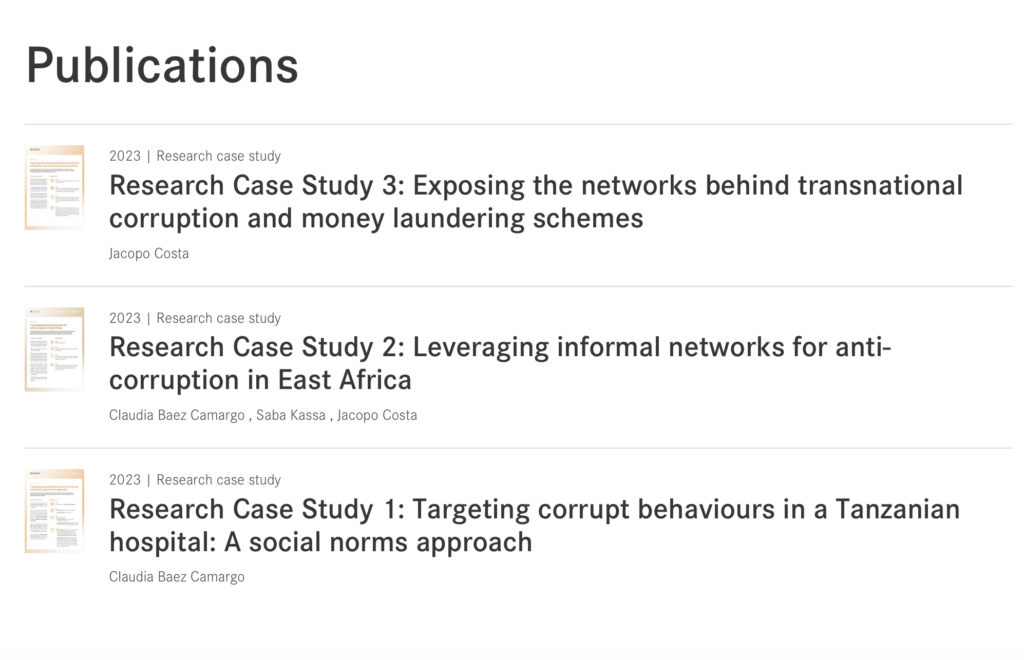Addressing bribery in the Tanzanian health sector: A behavioural approach

A behavioural approach is adopted to develop and test an anti-corruption intervention in the Tanzanian health sector, recognising that social norms can fuel practices of gift-giving and bribery between health service providers and users.
Click here for the Project One-Pager
To learn more about this project, contact Principal Investigator
Claudia Baez Camargo.
Project Summary
In previous research, it was found that social norms of gift-giving and reciprocity are linked to patterns of bribery in the Tanzanian health sector. These norms are enacted and confirmed repeatedly by the interactions of individuals across their social networks. Failing to accept a gift or to reciprocate a favour is punished by means of gossip, criticism, and even social isolation, further enforcing the norms.
This project develops an anti-bribery intervention that works with health workers, as well as with trusted community-based social networks to deliver messages of attitudinal and behavioural change, aimed at addressing the social acceptability of bribery and gift-giving in the provision of health services in public facilities. The hypothesis is that effective and sustainable change can be yielded by (a) explicitly recognizing the role of social pressures in perpetuating practices of petty corruption, and (b) harnessing the power of social networks to promote better understanding about the hidden costs of corruption.
Policy and Programming Implications
In spite of adopting appropriate legal and institutional anti-corruption frameworks, many countries around the world suffer from the effects of endemic levels of corruption. This underscores the importance of developing new approaches that are directly grounded in the local realities of each context, addressing the motivations of social, political, and economic groups. This project aims to provide evidence on (a) the feasibility of using social networks as an approach to implement anti-corruption interventions, and (b) whether it is possible to work with social norms to promote better anti-corruption outcomes. Such evidence will yield critical insights for the development of context-sensitive interventions that take into account behavioural drivers of decisionmaking, which can make corruption difficult to eradicate solely by means of conventional legal approaches.
Research Questions
- How can behavioural insights inform anti-corruption practice?
- Can a social norms focus be useful in addressing entrenched patterns of corruption?
- Can delivering anti-corruption interventions through existing social networks help bolster the fight against corruption?
Methodology
Both providers and users of public health services will be engaged for the intervention. For the case of users, the methodology to map and engage with social networks involves identifying the right seed nodes (opinion leaders) in a network to disseminate the intervention, thereafter assessing how particular ideas and attitudes spread through their existing social networks. Plans for capturing the effect of the intervention on attitudes and behaviours include an exit survey in selected public dispensaries in Dar es Salaam. The impact will further be assessed through a rigorous evaluation approach, such as a randomised controlled trial.
Research Team Members
- Claudia Baez Camargo, Head of Governance Research, Basel Institute on Governance
- Richard Sambaiga, Senior Lecturer, University of Dar es Salaam
- Ruth Persian, Senior Advisor, The Behavioural Insights Team
- Matthew Howitt, Associate Advisor, The Behavioural Insights Team
- Tobias Stark, Assistant Professor, Department of Interdisciplinary Social Science, Utrecht University








